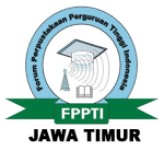Web Therapy for Internet Addicts: A Case Study of Self-Healing by Social Media Addicts in Indonesia
Unduhan
This study aims to analyze how the information sources on the internet used as therapy treatment (Web Therapy) by internet addicts, especially social media addicts.The method used is qualitative method based on case study perspective.The method used to collect data incorporates in-depth interview, observation, and literature study. The informants are seven internet addicts who acknowledge themselves as internet addicts, especially social media addicts not by medical diagnostic as one and been using internet sources as a treatment to overcome their mental issue.Triangulation is conducted by interviewing a psychology expert. The study results show that (1) The informants admit that information sources on the internet help them reduce stress while under pressure. (2) The informants admitted the initiative comes within themselves to use information sources on the internet in order to reduce stress. (3) There are some ways for informants to identify their personal problems, that is (a) When they feel like they have no one around to talk with, to share their problems with, they use chatting platform to talk with and positive feedbacks from social media. (b) When they encounter negative psychological condition, they need entertainment from internet sources to be relaxed and refresh. (c) When they need contemplation they will look up for some information sources on the internet which might help them to contemplate. (4) To employ self-healing using Web Therapy, the informants choose (a) Entertaining information sourcesthat can help them laugh and relax (b) Information sources contain references on how to cope with their problems. (c) Information sources that can help them to contemplate when encounter problems. (d) Interactive information sources where they can interact and communicate with friends online. (5) The informants prefer social media such as online games with multiple players, youtube, facebook, online forums longue such as kaskus.com and detik.com, and the form of information including games, movies, music, articles on health, food, humor series, chatting, memes, sarcasms, and satyrs (6) The informants agree that although they feel better after using some information sources on the internet as a treatment for self-healing therapy, but it is only temporary not a permanent one. They are also aware of the significant to face their own problems and cope with it. This study results can be the groundwork for libraries to develop Web Therapy services.
Unduhan
Ericsson Consumerlab . 2012. Internet – a great stress reliever for busy city dwellers. Accessed September 7, 2016. https://www.ericsson.com/res/docs/2012/consumerlab/city_life_stress_relief_article_3.pdf.
Afolayan, Johnson A. 1992. "Documentary Perspective of Bibliotherapy in Education." Reading Horizons Volume 33, Issue 2 November/December 1992 Article 5 137-148.
American Library Association (ALA). 2015. Bibliotherapy. December 4. Accessed September 9, 2016. view-source:http://www.ala.org/tools/atoz/bibliotherapy.
Earley, Jay. 2009. Self-Therapy: A Step-By-Step Guide to Creating Inner Wholeness Using Ifs, a New, Cutting-Edge Therapy. Minneapolis, USA: Hillcrest Publishing Group.
Faibisoff, Sylvia G., and Donald P. Ely. 20XX. "Information and Information Needs." Information Report and Bibliographies Vol. 5 No. 5 2-16.
Friedman, Howard S. 2000. The Self-Healing Personality: Why Some People Achieve Health and Others Succumb to Illness. s.l.: iUniverse.
Geogetown University Library. 2009-2016. Evaluating Internet Resources. Accessed September 7, 2016. http://www.library.georgetown.edu/tutorials/research-guides/evaluating-internet-content.
Hampton, Keith N., Lee Rainie, Weixu Lu, Inyoung Shin, and Kristen Purcell. 2015. Social Media and The Cost of Caring. NUMBERS, FACTS AND TRENDS SHAPING THE WORLD, Washington, DC: PAW RESEARCH CENTRE.
Hay, Louise L. 2004. You Can Heal Your Life. United Kingdom: Hay House, Inc.
Indarini, Nurvita. 2015. Sehat dengan Self Healing: Self Healing, karena Tiap Orang Adalah Penyembuh Terbaik Bagi Diri Sendiri. January 20. Accessed September 15, 2016. http://health.detik.com/read/2015/01/20/123234/2808275/763/self-healing-karena-tiap-orang-adalah-penyembuh-terbaik-bagi-diri-sendiri.
J.L.G. de Rivera, MD. 1992. "The Stages of Psychotherapy." Eur. J. Psychiat. Vol. 6, N.° 1, January/March 51-58.
Kemp, Simon. 2016. Digital in 2016: We Are Social's Compendium of Global Digital, Social and Mobile Data Trends and Statistics. Special Report, Singapore: wearesocialsg.
Mayer, Michael. 2011. Energy Psychology: Self-Healing Practices for Bodymind Health. Berkeley, California: North Atlantic Books.
Noruzi, Alireza. 2007. "Webotherapy: Reading Web Resources for Problem Solving." The Electronic Library 25(6) 741-756.
Philip Gill, at al. 2001. The Public Library Service: IFLA/UNESCO Guidelines for Development. Munchen: Saur.
Schell, Charles. 1992. The Value of the Case Study as a Research Strategy. January. Accessed September 7, 2016. http://www.finance-mba.com/Case%20Method.pdf.
Scogin, F.R. 2003. "Introduction: the status of self-administered treatments." Journal of Clinical Psychology, Vol. 59 No. 3 247-249.
Yin, Robert K. 2003. Case study research: Design and methods (3rd ed.). Thousand Oaks: Sage.
Zucker, Donna M. 2009. "Teaching Research Methods in the Humanities and Social Sciences How to do Case Study Research ." In How to Do Case Study Research, by School of Nursing Faculty Publication Series, Chapter 14. Amherst: ScholarWorks@UMass Amherst
Record and Library Journal by Unair is licensed under a Creative Commons Attribution-ShareAlike 4.0 International License.
1. The journal allows the author to hold the copyright of the article without restrictions.
2. The journal allows the author(s) to retain publishing rights without restrictions
3. The legal formal aspect of journal publication accessibility refers to Creative Commons Attribution Share-Alike (CC BY-SA).
4. The Creative Commons Attribution Share-Alike (CC BY-SA) license allows re-distribution and re-use of a licensed work on the conditions that the creator is appropriately credited and that any derivative work is made available under "the same, similar or a compatible license”. Other than the conditions mentioned above, the editorial board is not responsible for copyright violation.


 57201398420
57201398420

























